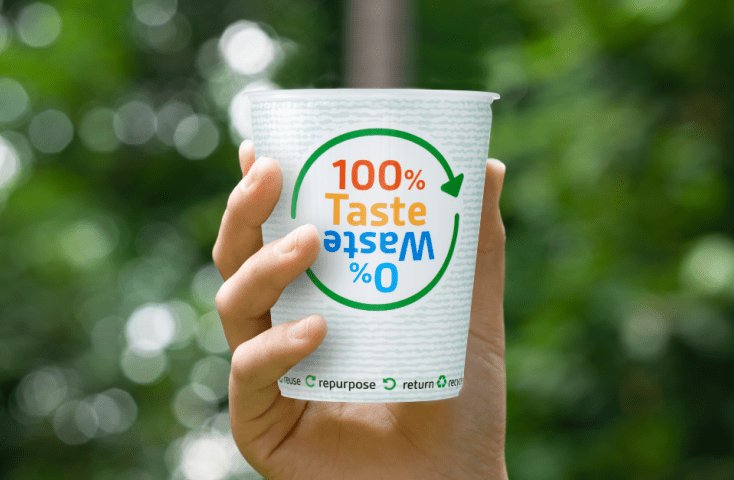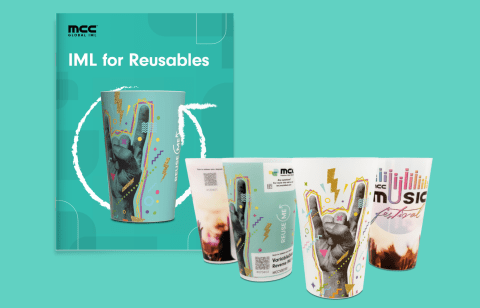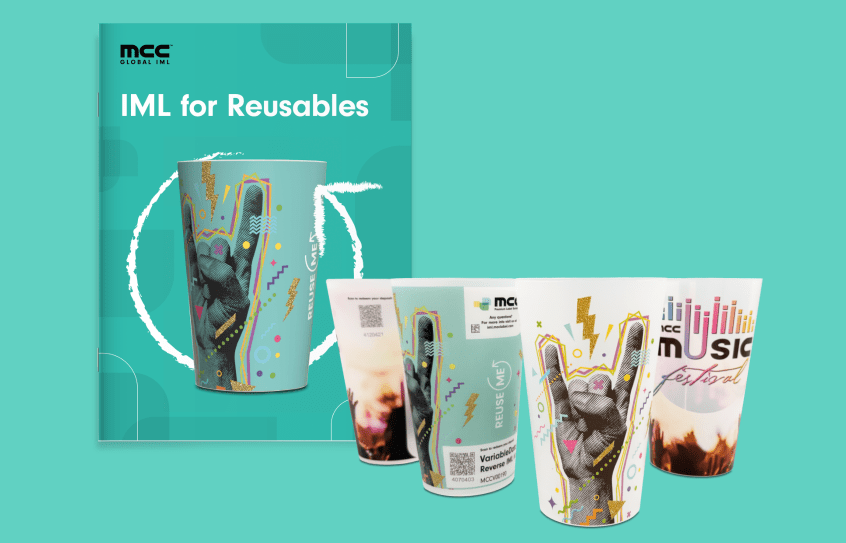
Trend article
The future is not disposable
How reuse fosters a sustainable environment

Key Takeaways
- As sustainability takes center stage in consumer preferences and corporate agendas, the trajectory of reusable packaging remains on an upward path.
- With its versatility, adaptability to different market segments, and futureproof appeal, reusable packaging emerges as a cornerstone of sustainable practices in a rapidly evolving global landscape.
- Embracing this trend not only fosters environmental stewardship but also positions businesses for long-term success in a conscientious market milieu.
Read full article ↓
Exponential growth in reusable packaging market
The reusable packaging market is experiencing exponential growth, fueled by increasing awareness and regulatory push towards sustainability.
The global reusable packaging market size was estimated at USD 113.77 billion in 2022 and is projected to reach a valuation of USD 197.11 billion by 2032, growing at a CAGR of 5.7% from 2023-2032 (source).
Notably, the segment catering to reusable drinking cups for takeaway drinks, festivals, and events is poised for accelerated expansion, outpacing the overall market growth. The emphasis on reducing single-use plastic in the food and beverage industry is driving the adoption of reusable cups.
The market for reusable drinking cups is forecasted to grow at a higher CAGR compared to the overall reusable packaging market. A study by ResearchNester suggests that the Global Reusable Coffee Cup Market alone is expected to register a CAGR of 5.8%, with an estimated revenue of 24.858 million USD in the forecast period of 2022-2031 (source).
Regional dynamics
Government initiatives and shifting consumer preferences are driving growth across regions, with varying degrees of adoption - often influenced by socio-economic factors.
Europe has established itself as the frontrunner in the reusable packaging market, commanding the largest market share. This notable position can be attributed to a combination of factors:
- A strong presence of major reusable packaging manufacturers, contributing to a diverse and competitive market landscape.
- European manufacturing businesses adhere to well-regulated practices, ensuring high-quality production and standardized processes.
- The expansion of numerous end-use sectors in the region provides fertile ground for the growth of the reusable packaging market (source).
Several countries have started to impose national quotas, taxes etc. to promote the adoption of reusable packaging. For example: in Germany, restaurants, bistros, and cafes that sell food or drinks “to go” are obliged to also offer their products in reusable packaging from 2023 (source).
Developed economies with a strong focus on sustainability, such as North America, Australia and Europe, are likely to witness substantial growth. However, emerging economies in Asia-Pacific, particularly China and India, are also becoming key players in the reusable packaging market due to increasing awareness and government initiatives.

Consumer preferences
Concern about the environmental impact of products is an established fact and is reshaping purchasing decisions, with a growing preference for brands championing eco-friendly initiatives. End-user industries are therefore increasingly shifting to sustainable packaging products that reduce their footprint. Returnable packaging improves brand image as consumers think of companies as environmentally responsible (source).
A key factor in fueling the growth of the reusable and recyclable packaging market is the raised consumer awareness regarding the negative impacts of non-biodegradable materials (source).
However, challenges persist in educating and engaging consumers. For example, in a study of 7,000 european consumers by StoraEnso, 78% of respondents would be worried about hygiene if a product was packaged in a reusable container (source). This highlights the need for substantiated awareness campaigns.
Regulation
It should come as no surprise that increasing government emphasis on lowering the usage of single-use packaging, enhancing recycling, and stimulating reusability, is an important driver for the emergence of reusable packaging.
While in Europe all eyes are on the Packaging and Packaging Waste Regulation (PPWR), and other parts of the world might adopt a wait-and-see approach, one can reckon that this legislation will serve as a blueprint for future law making.
The impact on the environment
Reusable packaging reduces the environmental impact of supply chains in a variety of ways:
- Less solid waste: The long life of a single reusable packaging item eliminates hundreds of single-use packaging items from entering the landfill, reducing solid waste by up to 86%.
- Lower CO2 emissions: Reusable packaging eliminates the need to recycle or remanufacture single use packaging, reducing CO2 (greenhouse gas) emissions by up to 60%.
- Lower energy consumption: The energy used to manufacture reusable packaging items is up to 64% lower than is required to manufacture and recycle the single-use packaging items they replace.
- Lower water consumption: Single-use packaging systems use up to 80% more water during their lifecycle than reusable packaging, due to heavy water use during production, recycling, and disposal.
- Lower product waste: The superior product protection offered by reusable packaging results in lower product damage and waste - especially for perishables.
- Materials recovery and reuse: Reusable models are truly circular, recovering packaging at the end of its useful life so that materials can be recycled and used to produce new reusable packaging (source).
By mitigating carbon footprints and promoting a circular economy, reusable packaging contributes to combating plastic pollution and conserving natural resources. Initiatives promoting closed-loop systems and innovative materials further enhance the positive impact on the environment.
